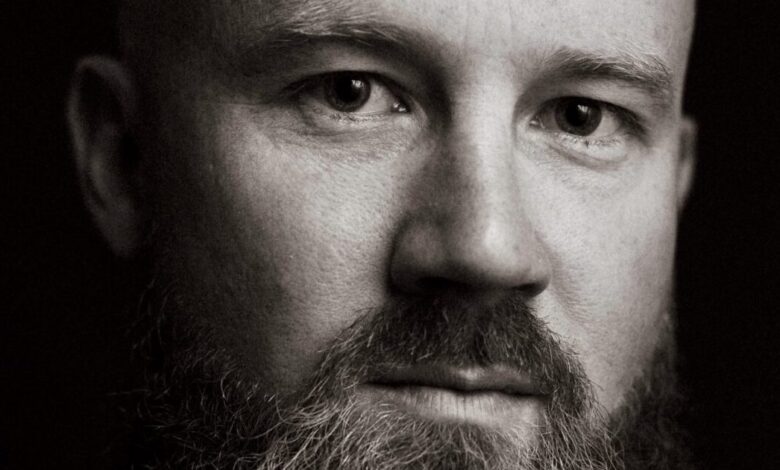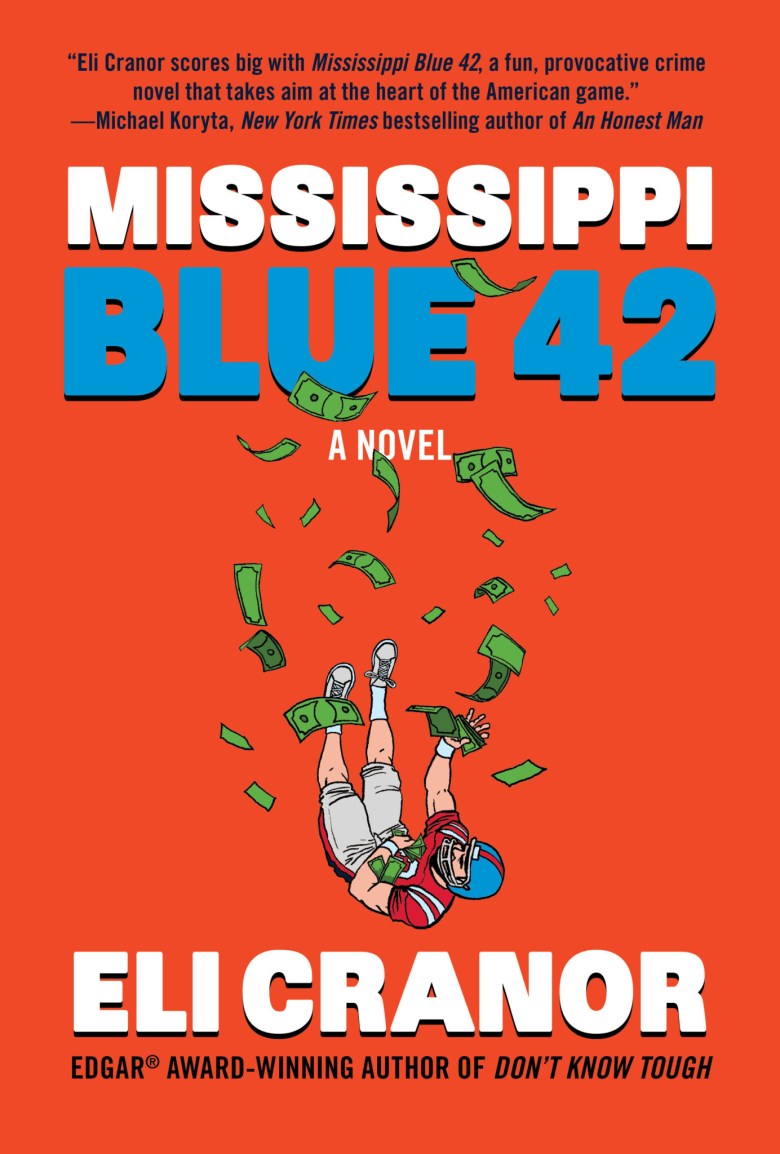‘Mississippi Blue 42’: A Q&A with writer Eli Cranor ahead of Six Bridges Book Festival

Whether you’re eager to find a surprise bestseller with an underwater creature as its protagonist (“Remarkably Bright Creatures” by Shelby Van Pelt), cynical about the integrity of musicmaking in the era of mass streaming (“Mood Machine: The Rise of Spotify and the Costs of the Perfect Playlist” by Liz Pelly), curious about the history of racial inequality in American education (“The Battle for the Black Mind” by Karida Brown), or looking for a crime thriller that, according to The Washington Post, “blurs any imaginary line between genre and great literature” (“Saint of the Narrows Street” by William Boyle), the Central Arkansas Library System’s Six Bridges Book Festival has a book for you. With nearly 50 visiting writers in tow, it’s likely that any other stray fascination you can imagine will also be represented at the festival, which runs the gamut from fiction to nonfiction to poetry.
Arkansas writers appearing at Six Bridges include Regina Black, Kevin Brockmeier, Viktoria Capek, Eli Cranor, Susie Dumond, Buckley T. Foster, Carolyn Guinzio, Maria Hoskins, Jared Lemus, Linsey Miller, Adolph L. Reed Jr., Kat Robinson, Ginny Myers Sain, Vaughn Scribner, Alex Vernon, Neena Viel and Rhona Weaver.
Getting fully prepared for Six Bridges, which runs from Sept. 28-Oct. 5, might be the world’s longest homework assignment, so we’ve collected a handful of email and phone interviews with Arkansas-connected authors to whet your palate. For a full schedule, head to cals.org/six-bridges-book-festival.
***
Born in Forrest City and raised in Pope County, where he lives and teaches at Arkansas Tech University, Eli Cranor is a former professional football player and the Edgar Award-winning author of four literary crime novels, including “Don’t Know Tough,” “Ozark Dogs,” and “Broiler,” which was longlisted for the Mark Twain American Voice in Literature Award. His most recent novel, 2025’s “Mississippi Blue 42,” focuses on a “rookie FBI agent who finds herself caught in the tangled web of a college football empire — and the bloody greed that fuels it,” according to publisher Soho Crime. You can read an excerpt here.
After three books rooted in Arkansas, “Mississippi Blue 42” is your first novel to be set elsewhere. Why’d you change things up?
I took on chicken processing in “Broiler,” and I felt like I was maybe brave enough to do that in Arkansas. But I definitely wasn’t dumb enough to try to take on — or even fictionalize — the one university here with big-money football. The other part is, I was born in Forrest City and lived there until I was, like, 5. All my family’s from there. Geographically and culturally, I feel like that area of Eastern Arkansas has more in common with the Mississippi Delta. The blues, the different types of farming and fields, all that world — that different culture felt really fun. And it’s also known for college football.

Imagine a potential reader with zero interest in sports. Would you discourage them from reading “Mississippi Blue 42” or is there still something for them in this book?
I would hope anybody could enjoy this. And I definitely have already met people on the road here the last few weeks that have. One of my favorite authors right now is Megan Abbott. She wrote a great book called “The Turnout,” which is about two sisters who run a ballet school. I don’t know anything about ballet, but I loved the way she went into that world and painted it in very specific strokes.
Football is a funny thing, though. People have such strong opinions about football, especially in the literary world. They hate football — and just football. There are great American novels about baseball. There are great American novels about boxing, so I don’t think it’s just a violence thing. I don’t know what it is. I don’t know if it’s just the culture of football and how it’s so fanatical. But for me, football so perfectly mirrors our culture and is so uniquely American.
I deal in crime fiction, and the reason I really like crime fiction is I think laws and crime tell you a lot about your culture and what you’re willing to let people get away with. With “Mississippi Blue 42” specifically, it deals with the new laws that allow players to be paid and how we got there. Prior to 2021, they couldn’t. And you had a multibillion-dollar industry that was college football. Coaches were getting paid multimillion-dollar buyouts just to get fired while these players — who you came to see — couldn’t make a dime. It felt so American. It felt like a part of our history that we’ve seen played out, be it in the chicken process industry, mega corporations or football.
“Mississippi Blue 42” is the first title in a series. How many books are you planning to write and what about this premise made you decide it was worthy of multiple volumes?
It was always a two-book idea — one before the players could get paid and one in a world where the players can. But I really have fallen in love with the federal agent character, Rae Johnson, and I think that’s what you have to have to make a series go. Rae is a former college pole vaulter and my wife is a former college pole vaulter, so I think what I’ve done is taken my wife and made her the heroine of this series. I like hanging out with her, so I don’t know how many books it’ll be [laughs].
Who’s the writer you’re most excited to encounter at Six Bridges and why?
I’m really excited to talk with Seth Wickersham about his book “American Kings: A Biography of the Quarterback,” having played the position. He’s going to be my conversation partner. I have not read that book yet, but it looks amazing for all the same reasons we’ve talked about. I also have two dear friends whose books rank among the best things I’ve read in the last five, maybe 10 years. And that’s William Boyle with “Saint of the Narrows Street” and Lucas Schaefer with his amazing debut, “The Slip.” I get to moderate their conversation and I cannot wait. Maybe the one I’m absolutely the most excited about, though, is Louis Sachar because my favorite thing as a kid — and now as a dad to read to my kids — is “Sideways Stories from Wayside School.”
Source link
